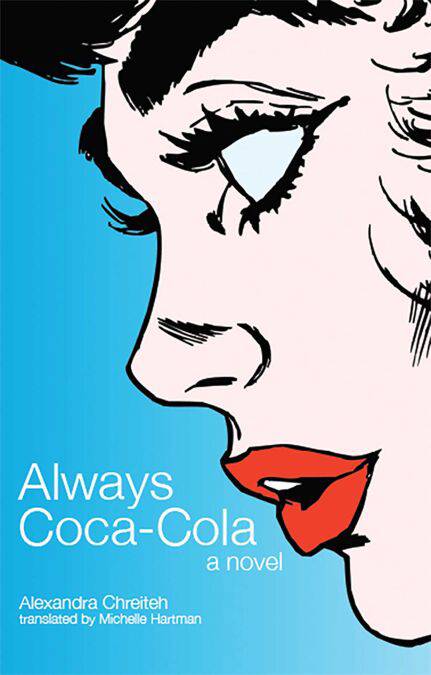
- Afhalen na 1 uur in een winkel met voorraad
- Gratis thuislevering in België vanaf € 30
- Ruim aanbod met 7 miljoen producten
- Afhalen na 1 uur in een winkel met voorraad
- Gratis thuislevering in België vanaf € 30
- Ruim aanbod met 7 miljoen producten
Zoeken
Omschrijving
The narrator of Always Coca-Cola, Abeer Ward (fragrant rose, in Arabic), daughter of a conservative family, admits wryly that her name is also the name of her father’s flower shop. Abeer’s bedroom window is filled by a view of a Coca-Cola sign featuring the image of her sexually adventurous friend, Jana. From the novel’s opening paragraph—“When my mother was pregnant with me, she had only one craving. That craving was for Coca-Cola”—first-time novelist Alexandra Chreiteh asks us to see, with wonder, humor, and dismay, how inextricably confused naming and desire, identity and branding are. The names—and the novel’s edgy, cynical humor—might be recognizable across languages, but Chreiteh’s novel is first and foremost an exploration of a specific Lebanese milieu. Critics in Lebanon have called the novel “an electric shock.”
Specificaties
Betrokkenen
- Auteur(s):
- Vertaler(s):
- Uitgeverij:
Inhoud
- Aantal bladzijden:
- 144
- Taal:
- Engels
Eigenschappen
- Productcode (EAN):
- 9781623710057
- Verschijningsdatum:
- 31/10/2012
- Uitvoering:
- E-book
- Beveiligd met:
- Adobe DRM
- Formaat:
- ePub

Alleen bij Standaard Boekhandel
+ 14 punten op je klantenkaart van Standaard Boekhandel
Beoordelingen
We publiceren alleen reviews die voldoen aan de voorwaarden voor reviews. Bekijk onze voorwaarden voor reviews.











